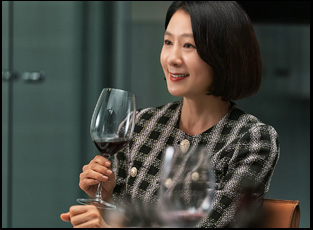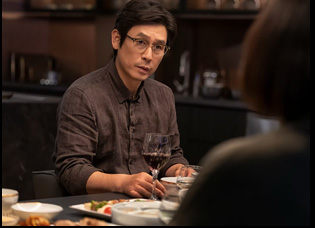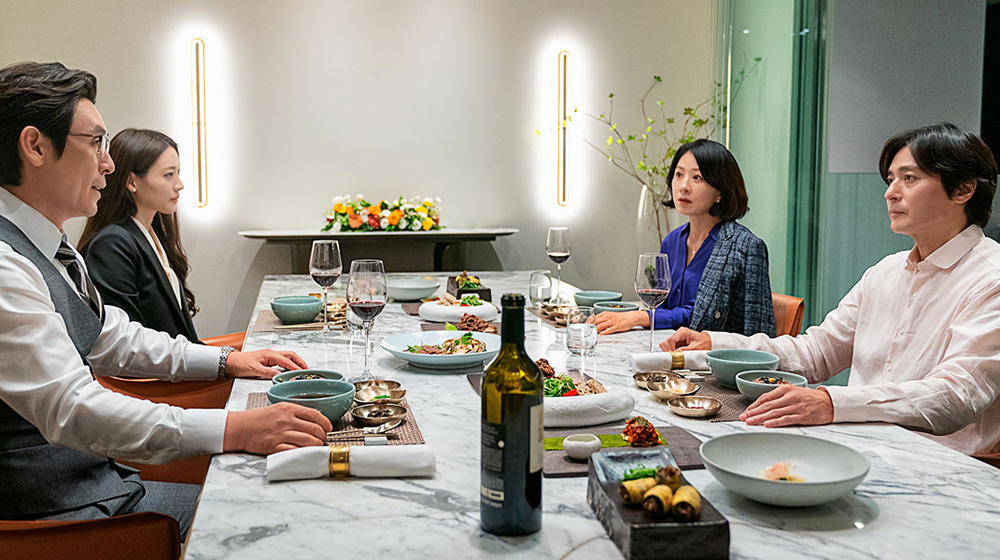There’s been no less than four film adaptations of Herman Koch’s “The Dinner” since the novel was put into publication in 2009, first in its native Netherlands and then subsequently in Italy and the U.S. with no one changing its title. After all, the premise of two brothers who have grown distant after living under the same roof meeting one another to break bread, only to learn that they may be torn apart for good upon learning of what their own teenagers have been up to, can be easily understood across borders and requires little more than a collection of great actors and some wine glasses to pull off the potent drama. Still, Hur Jin-ho had bigger ideas.
“It’s kind of funny, but the dinner time is quite short in Korea,” the director said recently, having made the most ambitious version of the story yet with “A Normal Family,” which announces in its opening frames that the time spent sitting around a table will be kept to a minimum with a road rage incident in which the filmmaker stages a most unsettling car crash. The characters directly involved aren’t the main ones, but inevitably drive a wedge further between Jae-wan (Sul Kyung-gu), a lawyer who will often defend morally questionable characters including an impetuous young man who hits the gas pedal at a stop light to smash into the car in front of him, and his brother Jae-gyu (Jang Dong-gun), a doctor who coincidentally has to tend to the young girl who is killed in the accident. In the meal that Hur does serve up, that proves to be only an appetizer for the conflict between them when their children are implicated in an unthinkable act of violence and they, along with their wives (Kim Hee-ae and Claudia Kim), have to come to an agreement on how best to handle the situation without putting their futures in peril.
The story has always been full of twists since Koch first put pen to paper, but Hur’s interest alone in taking it on is a surprise after becoming a revered filmmaker in his native South Korea for tugging at the heartstrings with romances such as “One Fine Spring Day” and “Happiness.” There is no love lost between the brothers in “A Normal Family” as Hur tackles the thorny relationship of Jae-gyu and Jae-wan, who on the surface would appear to have radically different ethics and know each other’s points of pain well despite no longer really feeling as if they know one another at all anymore. But the director shows how their attitudes change depending on the circumstances they find themselves in rather than considering them only as hypotheticals that occur to someone else, building on great performances with a muscular visual style that shows them engaged with the outside world even if the situation their kids have put them in forces them into hunkering down into survival mode.
Turning heads since its premiere at the Toronto Film Festival in 2023, the film is making its way stateside at long last as one of the first releases from the burgeoning distributor Room 8 Films and Hur graciously took the time to answer a few questions via an interpreter on the eve of the film’s theatrical release about finding something new in Koch’s novel and how by connecting it specifically to South Korea he was able to deliver a film more relatable around the world.

My first two movies that I created in my earlier days were regarding the topic of family, and I did want to create another movie about family. But in terms of the novel, what really interested me was taking a look at the two different decisions that two different brothers decided to take on, regarding the incident. After reading the novel, it made me question what would I do if I was in that position and this really made me think. It emphasized the idea of the duality of a person when faced with a situation like this, and this naturally made me think that this is a societal issue and dynamic that can be applied in the context of Korea [as it has in other countries].
Touching upon the socioeconomic gap between the people of Korea, as well as the pressure of education to young children in Korea were topics I thought that the same story could apply to, and I portrayed that in the film in a way where it’s a very abnormal situation with a very dysfunctional family. But watching this, maybe they are able to feel that this is something that could apply to me or any family.

Yes, the actor Jang Dong-gun is a very nice guy in real life. He’s very gentle and sweet, and when I wanted to portray the character of Jae-gyu, I just wanted that same aspect of actor Jang Dong-gun. And speaking with him more and more, we noticed there’s also some parts of the film where we wanted to include a duality [for the character]. For example, the scene at the church really emphasizes how two-faced and almost fake that Jae-gyu can be, so we worked on that as the film progressed.
Visually, the film is quite striking in how you’ll compose shots that include the world around the characters in the frame with them, so you really feel its weight. What went into thinking about the framing on this?
Those are definitely parts I continuously talked with the [cinematographer] about. We wanted to shoot this in a way that’s almost like you’re observing these characters, but also it’s a reflection of themselves. Those things are reflected in particular scenes like when Jae-wan is faced with this [difficult central] situation and the emotions and the hardships that he’s facing at the moment are all reflected on screen through the shots [as he’s in an office high-rise]. Then in regard to color and lighting, that definitely shifts as the story progresses. For example, towards the beginning of the film, Jae-wan’s lighting and color is a lot more bright and it becomes a lot more ambient as the story progresses to reflect his shift in morals and ethics.

When I saw the reaction of the people globally, of course, everyone around the world is from a different culture and we speak a different language, but I think that the central issue relating to a child and the motherly and fatherly instinct, those are things that everyone is able to relate with, so I really felt that there was a big movement relating to the film.
You referenced your earlier films and they’ve often been romantic and put people at ease. Has it been satisfying and even fun for you to make something that makes people a little more uncomfortable?
I actually heard often that I can tell that this was produced by director Hur, but for this movie, “A Normal Family,” a lot of people told me, “Oh, is this really director Hur?” I was really excited and happy that I was able to share a different type of story through this film.
“A Normal Family” opens on April 25th in New York at the Angelika Film Center and Los Angeles at the Nuart Theatre.




